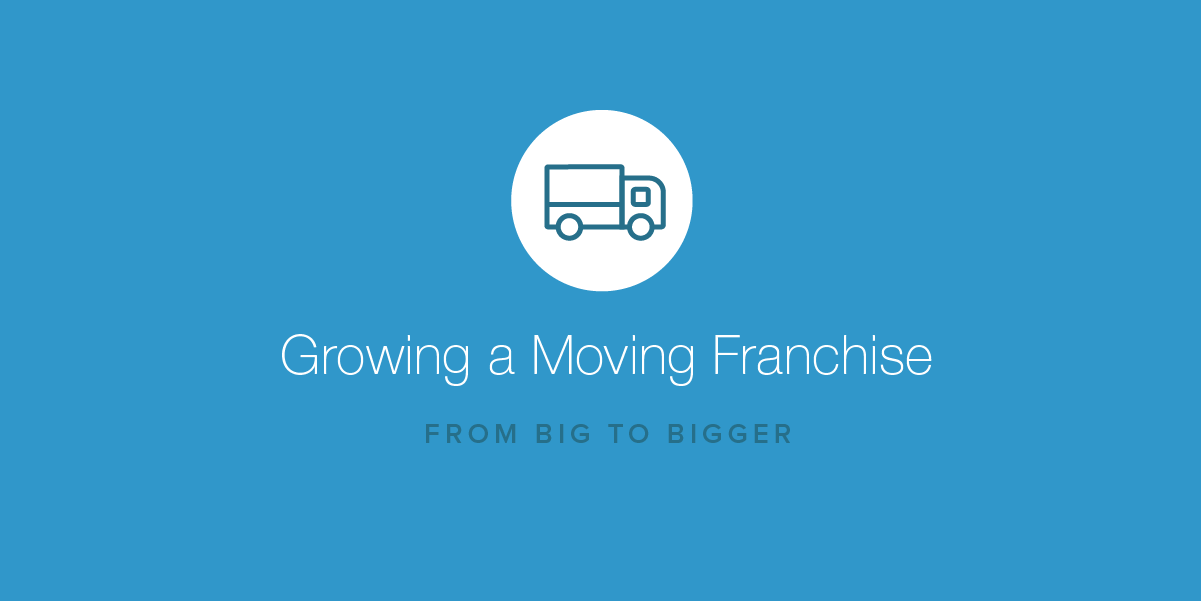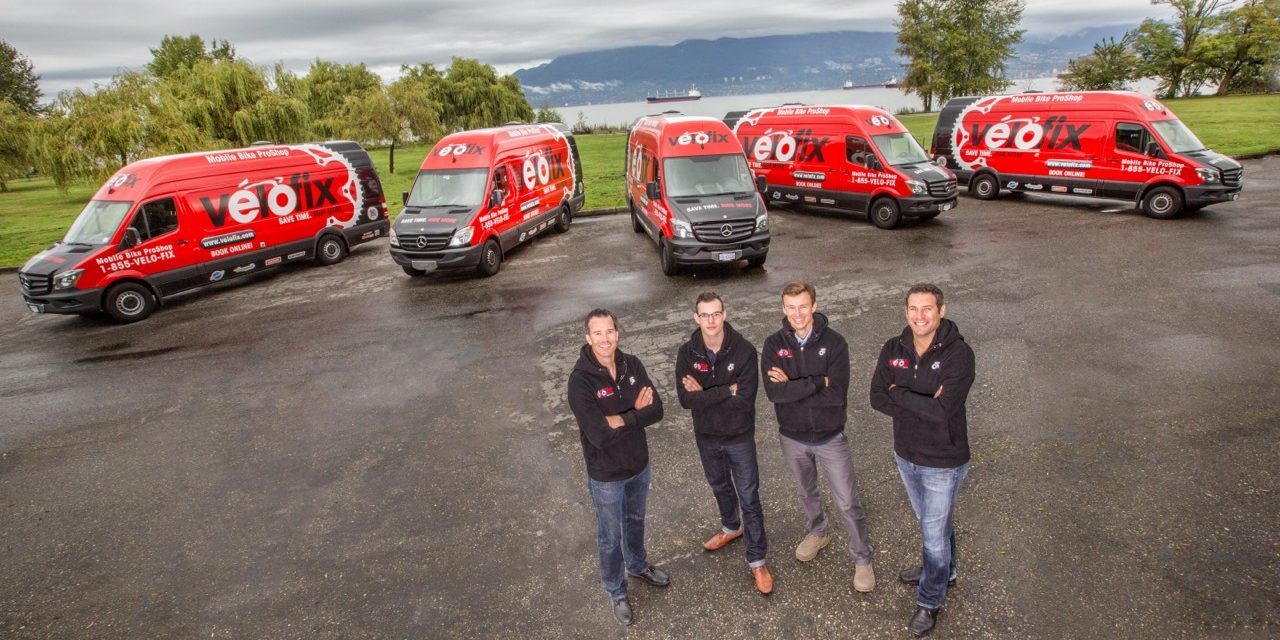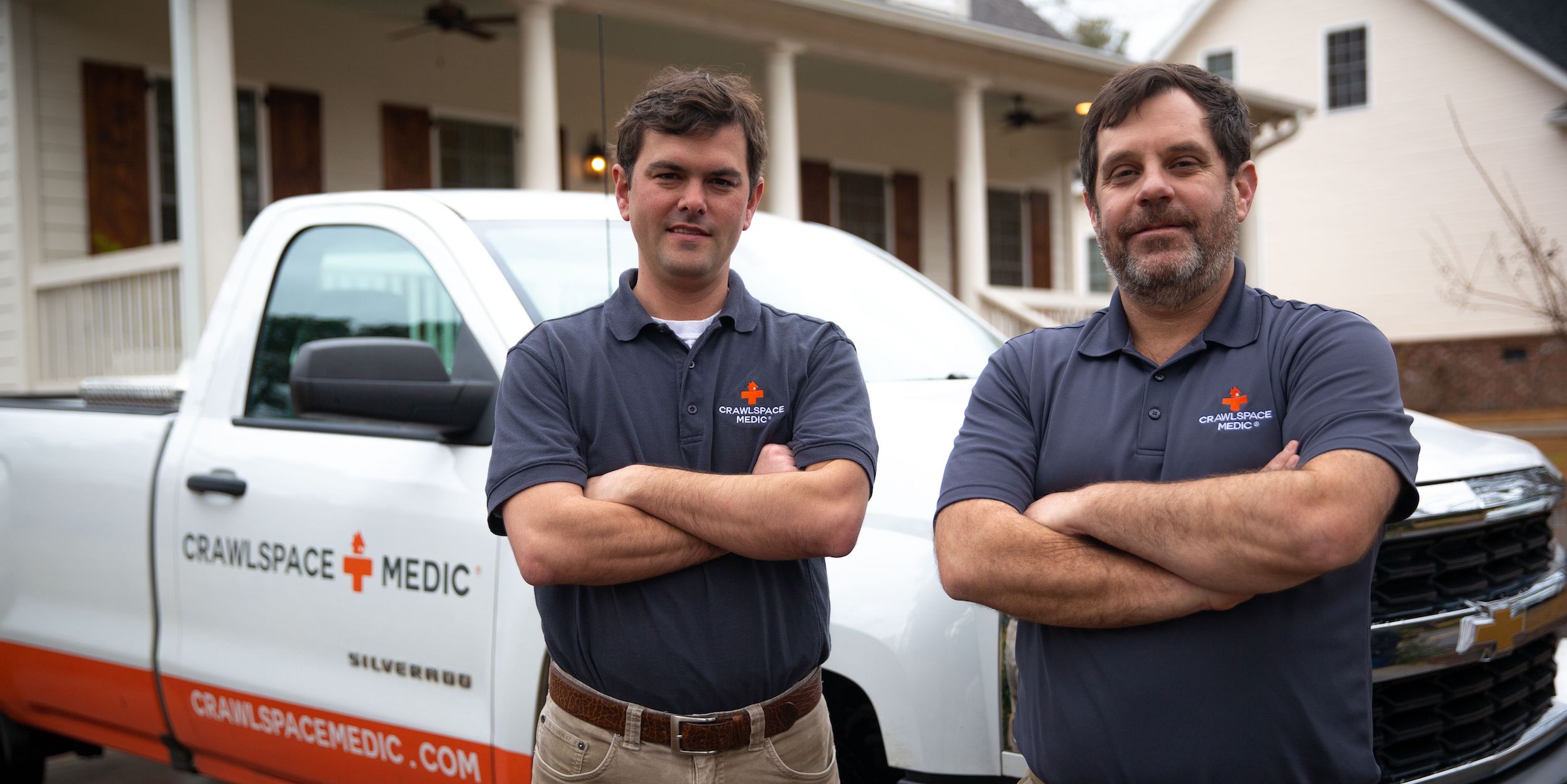Growing a Moving Franchise (from Big to Bigger)
- January 20, 2020
- By: Vonigo
Franchising your moving business is its own challenge — but what about how to grow a moving franchise to span across the state or the country? Here are some tips for how to get to that next level.
Service and Value
Moving franchises and indeed all moving businesses succeed when they can offer a consistent level of service and value. At the highest levels, this means having established business systems that can be replicated across multiple locations.
Moving businesses are a vital part of the transportation industry and are reflective of the success of the greater economy. A vibrant economy translates to families and businesses using moving services; that’s why starting a moving business can be such a smart business venture.
However, franchising any business, much less a moving business, can be extremely complex. You have to be able to manage a lot of moving parts to meet your customer’s needs. But to expand your business to multiple locations, cities, or states is another story entirely. Not only do you have to ensure that your business plan is well-thought-out enough to scale to multiple locations, but you’ll also need enough access to capital in order to hit the ground running.
You’ll also require expanded insurance, legal representation, and a wider pool of well-trained employees to make the entire company run smoothly. To that end, here’s how to grow a moving franchise from big to even bigger.

Differentiate Your Business
Standing out in a sea of competitors depends on the service you provide and the effectiveness of your marketing. In the age of social media and immediate access to customer reviews, you must strive to offer the best customer experience combined with result-driven marketing. The brand you create will help attract not only customers but potential franchisees as well.
For example, in the current business climate where it seems like there is a storage center on every city street, some businesses have evolved to bringing the storage unit to you. This zag, while the market zigs, could be the kind of differentiation that sets your business apart.
Moving is a big challenge to overcome, for any family or business. Removing the hassle from customers’ experience and providing them with a reliable expert they can trust will solidify your moving business as a go-to service. In other words, don’t compete on price, compete on a unique level of service.

Establish Viability in the Market with Research
The moving industry is a saturated market with thousands of companies across the United States. As reported by the American Moving and Storage Association, 47.8 percent of the companies in the industry employ fewer than five people. This points to a market where many of the small players compete on price in order to survive.
On the positive side, with nearly half of the moving companies being small enterprises, there are fewer big players to exert overbearing pressure compared to other industries. By incorporating a well-run business, you can be one of the major players in your area. You just have to make sure you’ve conducted enough market research to establish that additional locations can be supported by additional customers.
That means doing research that delves into the population, socioeconomic status, and other demographics. Research how competitive the market is and where the opportunities for growth are before you choose where to expand to next.

Raising Additional Capital
One of the barriers to doing anything is cost, but especially for expanding your business. You need adequate funding (without crippling yourself financially for month-to-month costs) so as to establish the seamless operation of a moving company. The startup costs include outlays for additional:
- Trucks and moving equipment
- Office space and employee salaries
- Moving and transportation insurance and licenses
- Marketing and advertising
- Franchisee training
If you want to expand the services your moving business offers, consider the storage and warehouse space. Different advantages and disadvantages come from buying or renting storage space. You need to choose according to your needs and your business’s liquidity. If you choose to include storage in your business model, a thorough financial analysis of your options is essential. You may also want to think about how to find efficiencies of scale for longer moves, like cross-country trips. What size of trucks or containers will you use and what complexities will it add if you combine multiple customers in one shipment?
The most important factor to consider in this step is, “Can we operate with the same level of service in this location?” You want to avoid incurring too much debt, which can lead you to have to cut variable costs. So instead of taking a lien on an asset, or a second-mortgage, try taking an investment from a potential partner. By doing so you eliminate some of the financial risks and have a partner that can help expand your leadership. Read about our partnership with funding partner OnDeck.

Finding Franchisee Partners
Not only do your new markets need to be viable, but you also need to find an owner who can help the business succeed. The challenge is in finding someone with the means to thrive, both financially and in terms of business acumen. And then you must convince them that investing in your existing brand and systems will be a shortcut to their success in the moving industry.
It’s not a small task, which is why having some differentiation in your markets and being armed with useful market data will go a long way toward expansion into multiple locations.
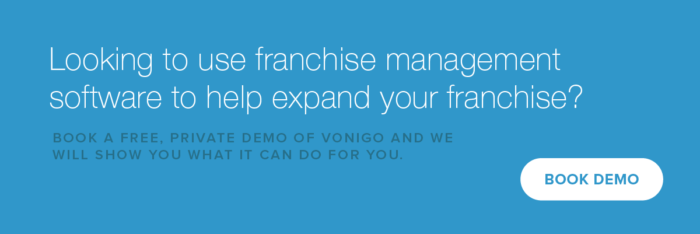
Franchise Agreements and Training Material
If you’re already franchising and have a number of locations in place already, add depth and detail to your franchise materials based on what you are learning in each location. You can account for the differences in each of the markets you serve and offer more detailed and nuanced training in your agreements and training manuals.
With a franchise agreement in place, the franchisee is granted the legal right to establish its own operation and storefront under your existing brand. All of these agreements require brokers or lawyers, so make sure both parties are properly represented and all documents have been thoroughly investigated to prevent any loopholes. For your sake, you will probably benefit from having a single legal advisor to handle all of your franchising agreements. If you’re going from big to bigger, this is your main focus now — selling and training new franchise partners.
Once the agreement has been tendered, you and your new franchisee partner now must work in cohesion for success all around. Success for your franchisee also yields success for you in terms of brand promotion, expanding your potential market, and increasing your customer base.
However, you must ensure that this expanded footprint does not result in a decline in quality. Having easy-to-follow systems in your franchising training manuals will help you deliver a consistent level of service. If your brand is known for the finer details, include them all in your manuals. Everything from how to tie a knot to how to invoice a customer should be documented and followed by every single company representative.

Marketing and Advertising Strategy, Assets
It stands to reason that by this point, you already know your CAC (customer acquisition costs). You have a very good idea of where to invest your marketing and advertising budget for maximum results. After all, you’re already successful in your local markets.
The challenge now is to establish plans and budgets in order to replicate your existing success in other markets. That means being able to provide your franchisees with what they need. You’ll be painting a lot of trucks and printing all kinds of promo materials. Find vendors who can cut you a good deal on larger volume orders; you’re in the big leagues now.
We have written several in-depth articles on advanced marketing and advertising tactics. Most of that expert advice is applicable even as you scale up.

Moving Franchise Management Software
Expanding from big to bigger is all about establishing systems that you can continue to replicate in multiple markets. And being able to oversee it all from your franchise headquarters.
At the level you are at now, you are likely already enjoying some efficiencies from a disparate set of software tools. Your accounting, your scheduling, your payments — they’ve all been digital for years. To get to that next level though, it helps to bring all of your business operations into a single moving franchise management software platform.
By having a true operating platform for your moving franchise, it’ll enable you to manage and scale centralized operations at the corporate level, while providing franchise partners all the tools they need to successfully run their businesses.
A feature like centralized online booking can help you offer your franchisees a “low touch” experience with the booking process. Each franchise can have all of their jobs on a calendar, assigned to specific trucks and crews. You’ll also have driving directions, invoicing, billing, and customer communications. Best of all, you can monitor the results of each of your locations from a handy dashboard and “turn on” new locations with ease.
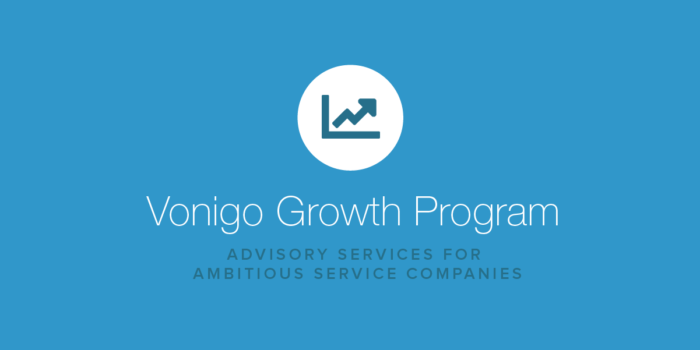
The Tools and Training You Need for Growth
If you are still reading this, you are clearly invested in the growth of your moving franchise. As makers of software for companies like yours, we succeed when you do. That’s why we offer a Growth Program where our team of experienced franchise advisors can help you navigate your growing pains.
We’ve also previously published an article with 10 tips for how to grow a moving franchise.
If you’re curious about what makes Vonigo’s moving franchise software different, we would be happy to show you. To learn more, book a free, private demo of Vonigo.
